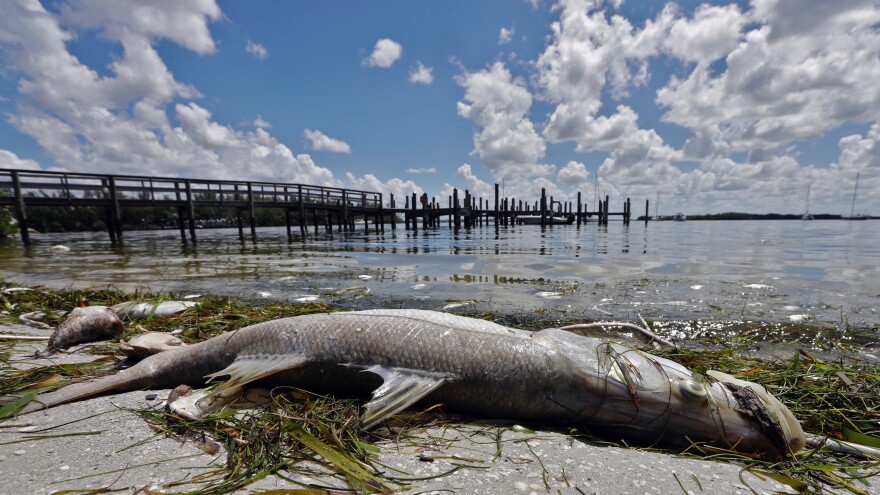A team led by University of Florida researchers is receiving nearly $280,000 to study the social and economic costs of harmful algal blooms.
The out-of-control algae colonies produce toxic effects on people and wildlife.
Scientists say pollution from human activity leads to more severe harmful algal blooms and makes them happen more often. Climate change is thought to make the problem worse.
“We know that in Florida and across the U.S., (blooms) are becoming more frequent, more toxic, longer-lasting and more widespread,” said Barbara Kirkpatrick, executive director of the Gulf of Mexico Coastal Ocean Observing System. “While we can’t eliminate blooms, having a better understanding of their mechanics as well as their negative consequences can help resource managers lessen their impacts on communities. That’s why these new studies are so important.”
Lead UF researcher Christa Court, an economist with the UF Institute of Food and Agricultural Sciences, said the study will focus on the red tide event that began in 2017 and lasted through early 2019, causing then Gov. Rick Scott to declare a state of emergency.
Researchers will be using data from past events as well.
“In order to inform decision making related to trying to mitigate these events in the future, we’re going to have to have a better understanding of the type of impacts that they’re causing,” Court said.
Court and her colleagues will try to determine the effects harmful algal blooms have on industries from tourism and seafood to health care and construction.
Federal funding for the study comes partly from NOAA’s National Centers for Coastal Ocean Science.
A second study is being conducted by a team of University of Central Florida and University of South Florida researchers.
Brendan Rivers can be reached at brivers@wjct.org, 904-358-6396 or on Twitter at @BrendanRivers.



